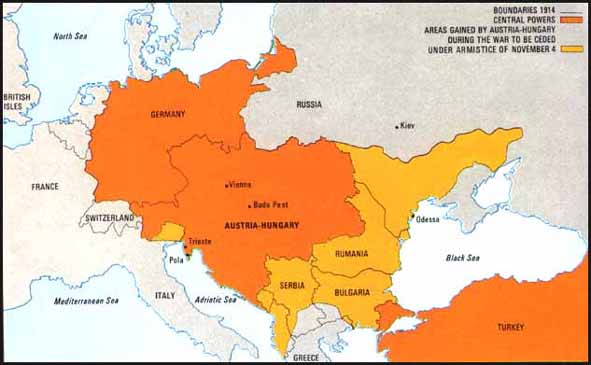Austrian Imperial Army
Austria and Hungary both had their own standing armies. In 1914 Austria had 40,000 soldiers and Hungary had 30,000. There was also the Imperial and Royal Army that was drawn from all parts of the Empire. The 350,000 men in this army gave their allegiance direct to Emperor Franz Josef. Recruits for all three armies were obtained by conscription.
The Army was officially under the control of the Commander-in-Chief, Emperor Franz Josef. By 1914 Josef was 84 years old and the chief of staff, Count Franz Conrad, was firmly in control of the armed forces. Conrad, favoured an aggressive foreign policy and advocated the use of military action to solve Austro-Hungary's territorial disputes with Italy and Serbia.
On the outbreak of the First World War Austro-Hungary was able to mobilize 2.25 million men. This was fairly small when one compares it to the 4 million mobilized by the French Army. Attempts were made to rapidly expand the size of the army and recruitment posters in 15 different languages appeared all over the Empire.

Language was a major problem for the Imperial and Royal Army. Around 80 per cent of all officers in the army were German speakers. However, this was true of only 30 per cent of other ranks and this created difficulties, especially for Czechs, Ruthenes and other racial minorities. In the first year of the war, Austro-Hungary lost 40 per cent of its troops, including most of its experienced officers. Over 500,000 men had been taken prisoner. Army morale was poor and nationalist resentment increased. This was reflected by the mass surrender in April 1915 of the Czech unit fighting against Russia on the Eastern Front.
When Franz Josef died on 21st November 1916, he was succeeded by his great-nephew Karl I. Unlike his chief of staff, Count Franz Conrad, Karl favoured a negotiated peace settlement. He also wanted more personal control over the Austro-Hungarian forces and in March 1917 he sacked Conrad and replaced him with Arz von Straussenberg.
Straussenberg was no more successful than Franz Conrad in improving the morale of the army. Nationalistic unrest continued and after the Allied victory at Vittorio Veneto, the Imperial and Royal Army began to disintegrate. Kaiser Karl I signed a peace settlement with the Allies on the 3rd November, 1918 and abdicated eight days later.
Official figures suggest that 1.54 million men in the Austro-Hungarian army were killed during the war. A further 1.22 million were taken prisoner and about 2 million were wounded during the conflict.

